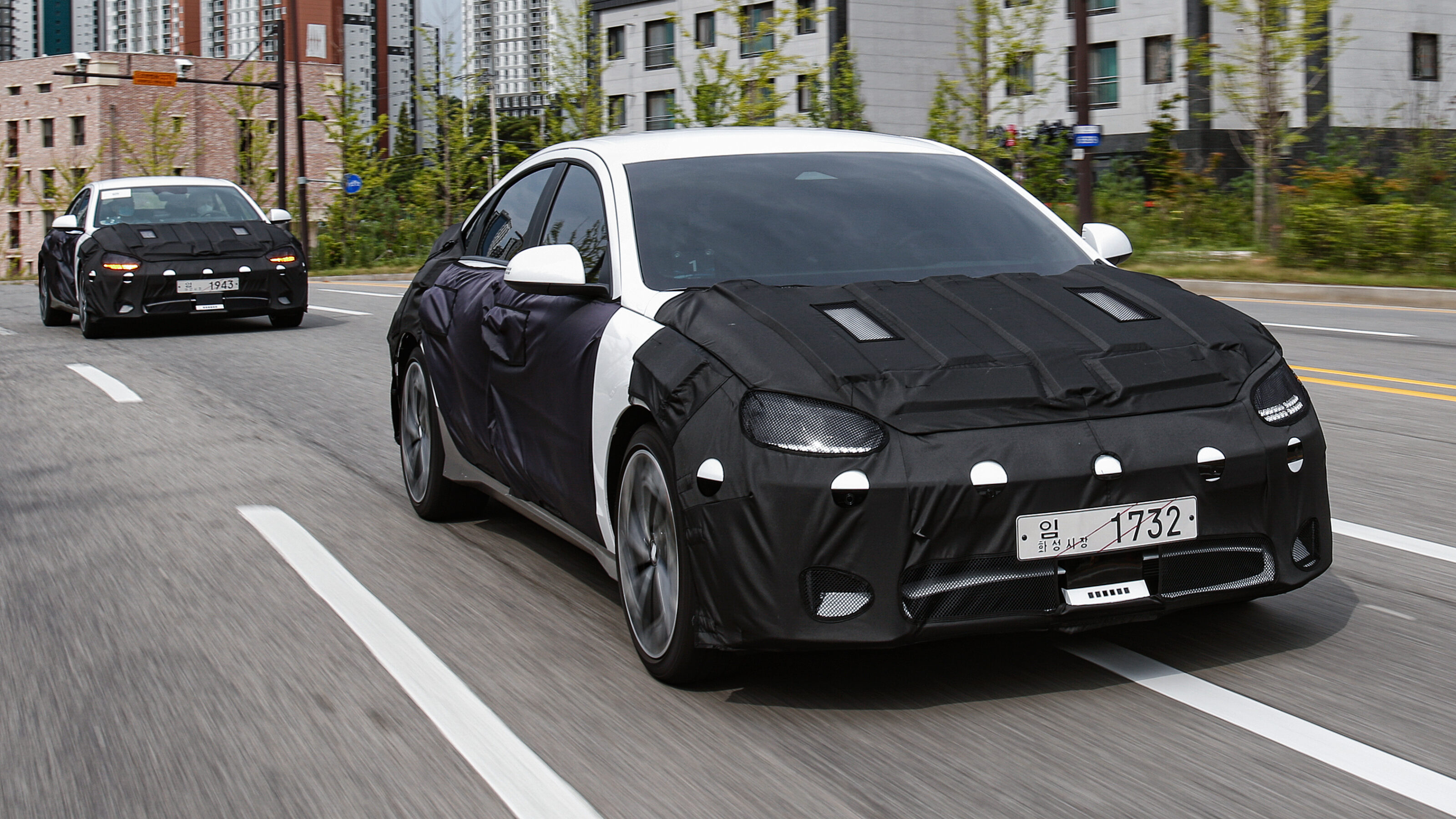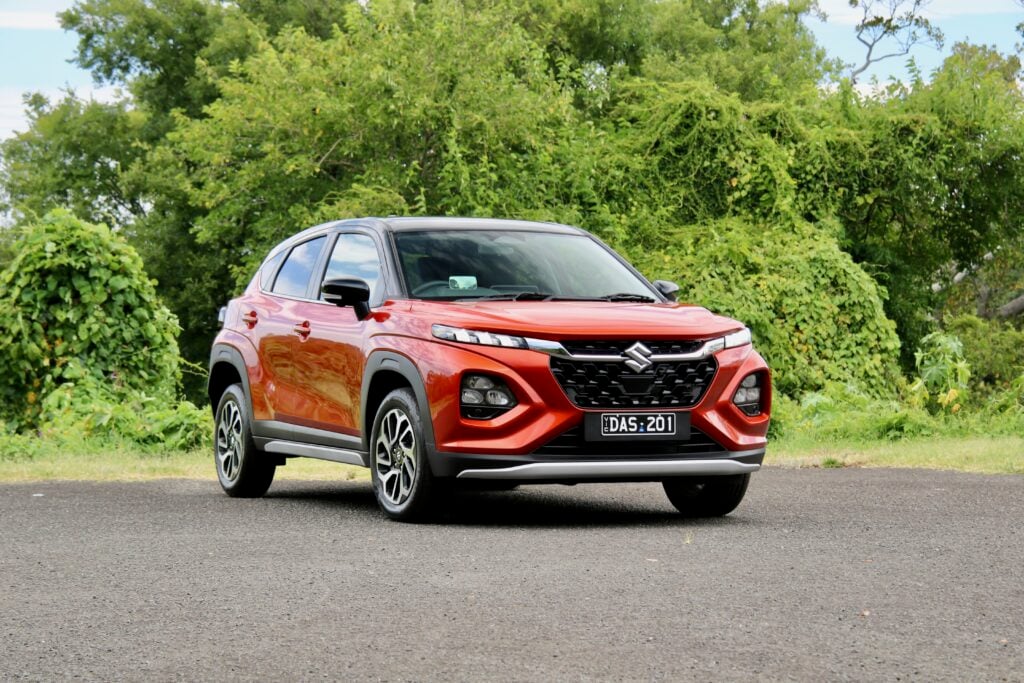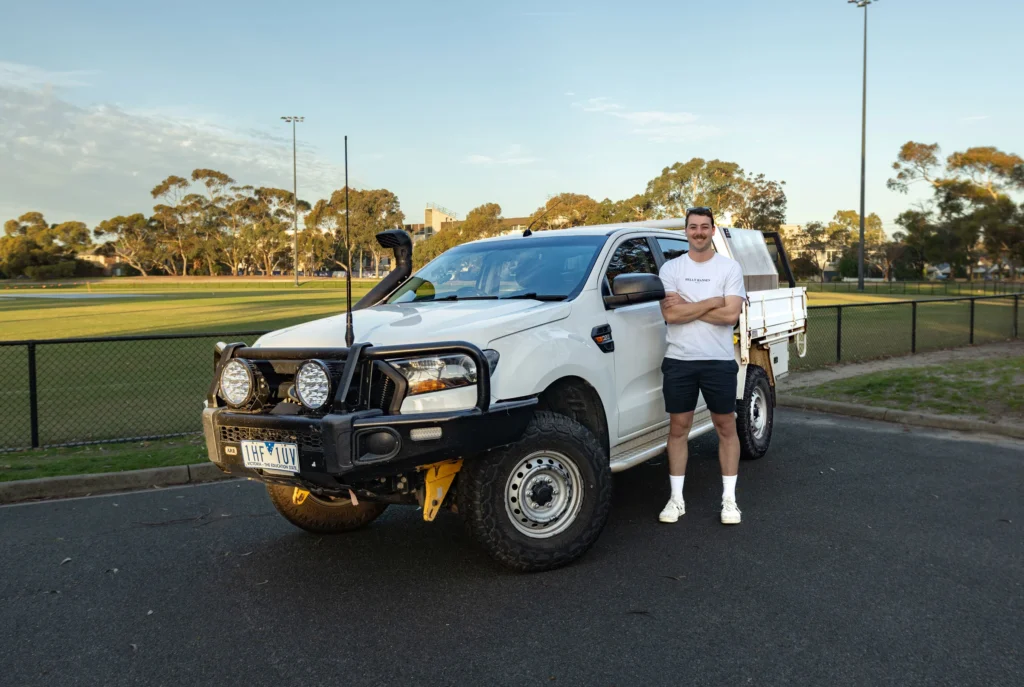Things we like
- Improved efficiency
- Sharper handling
- Massive range
Not so much
- Jury's out on Australian specs
- N model not yet confirmed
If by some incredibly unlikely set of circumstances and unbelievably good fortune, you managed to sneak into Hyundai’s heavily guarded Namyang proving ground, avoiding detection as you took the keys to a still-completely-disguised prototype, before making your way to the exit gate, I should imagine it would be a matter of seconds before the South Korean government ordered a missile strike on you.
Having visited the impressive 330-hectare site before, I recall the security was almost as memorable as the organisation, infrastructure and facilities.
And yet, this is exactly the situation in which I find myself. The car in question is the IONIQ 6 and it’s two days before the car’s official reveal at the Busan Motor Show. Despite this, I’m being waved through the main security gate and out onto public roads.
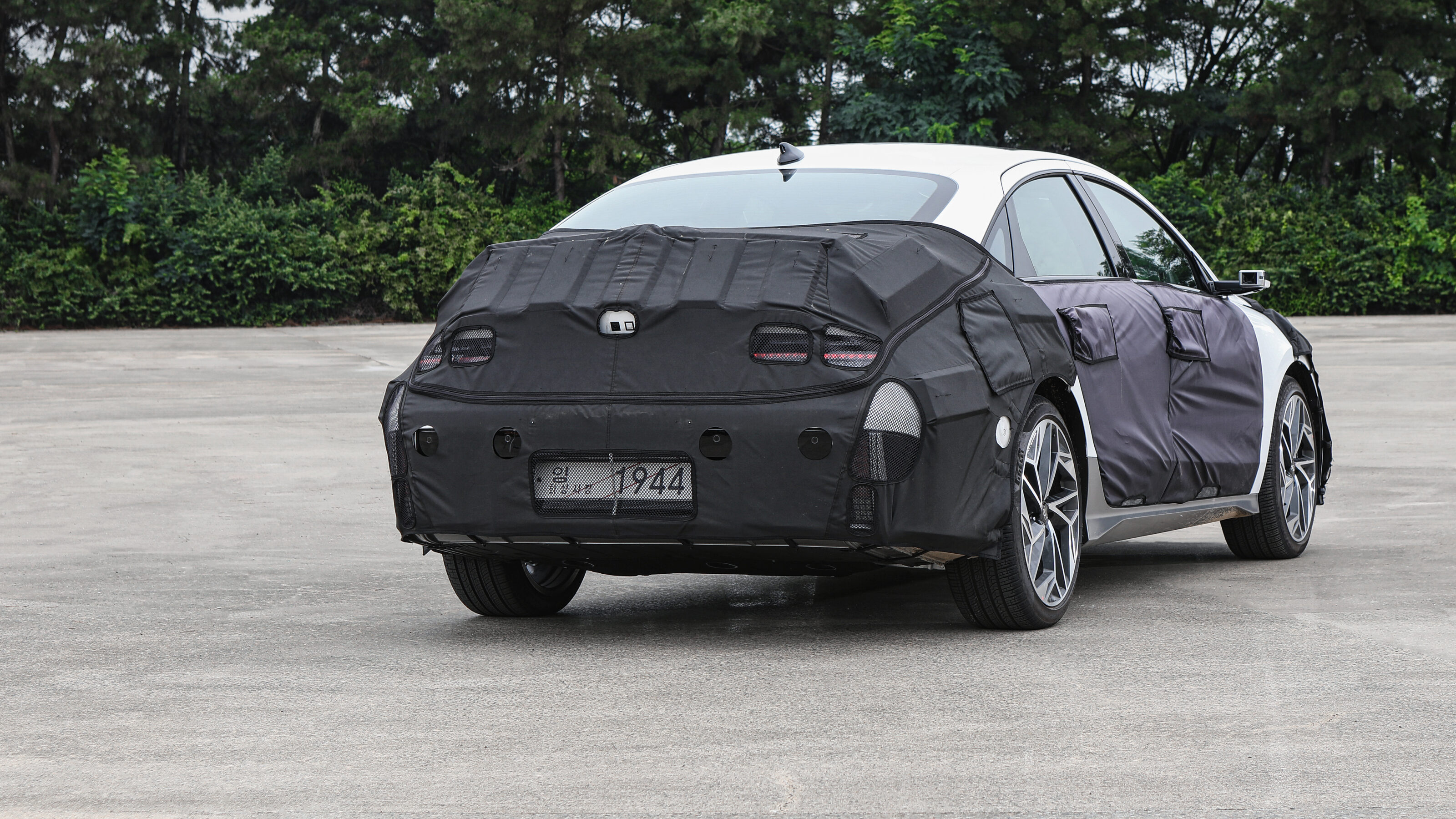
For the next few kilometres, I feel like one of Hyundai’s own test engineers, piloting a still largely enigmatic car that won’t hit Australian shores until 2023 and, at the time of writing, still hadn’t given up all of its secrets.
What is known is that the IONIQ 6 has a lot in common with the IONIQ 5 family foray, including the E-GMP electric platform, choices of rear- or all-wheel drive and pricing that will also align, within a range somewhere between $60,000 and $80,000.
But the second model in Hyundai’s new electric-only family takes the baton from the 5 and advances the EV cause even further. That’s why I’m in South Korea feeling like I just jailbroke a prototype. Performance has improved slightly over the IONIQ 5, with the most potent version capable of doing the zero to 100km/h dash in 5.1 seconds – a tenth faster.
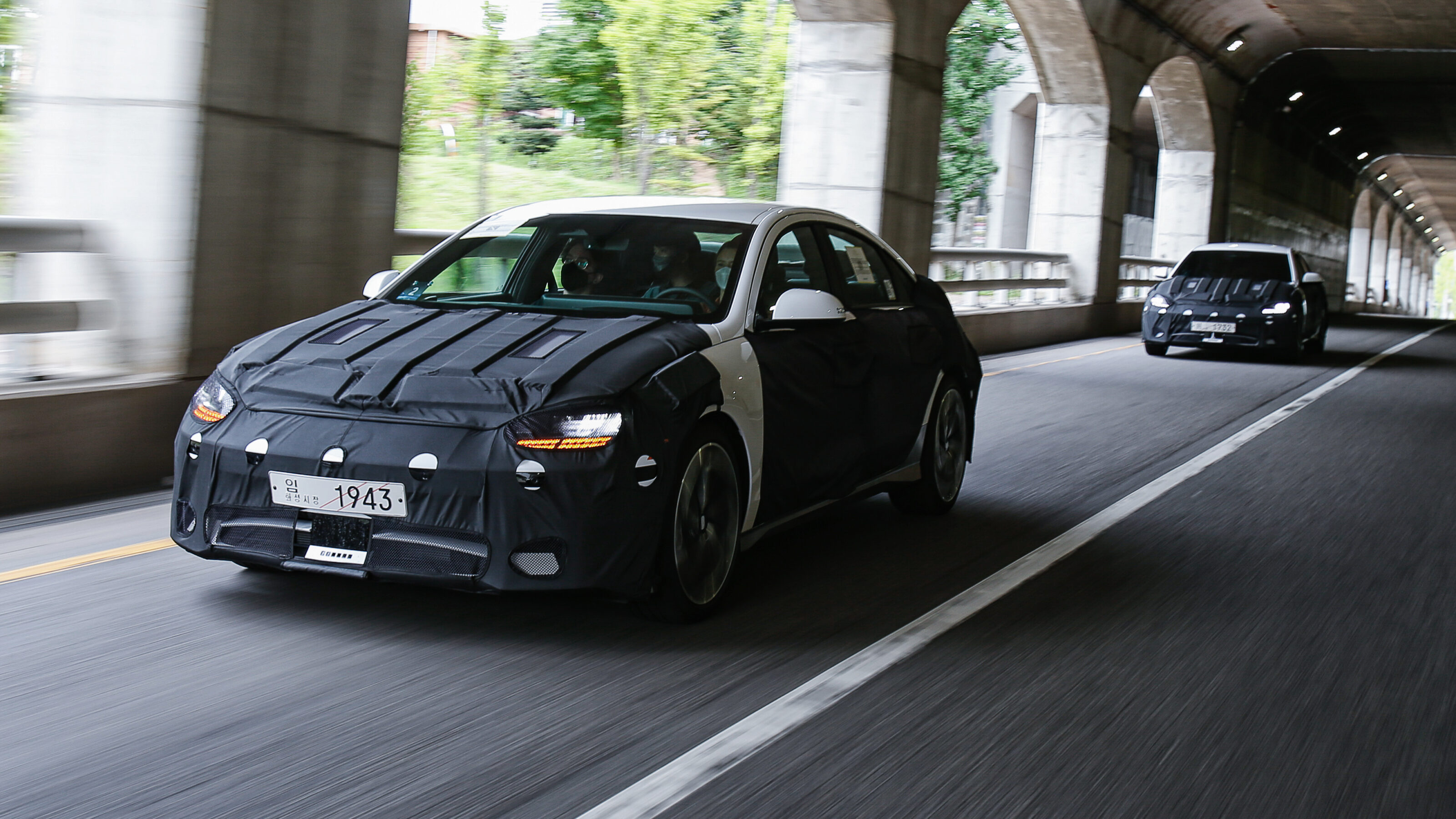
On the varying roads around the Namyang facility there are only a few opportunities to test the force of full throttle, but nor do I really want to. That’s because Hyundai claims the latest IONIQ drivetrain has made significant improvements to efficiency.
So it’s with a more gentle foot that I negotiate the short test route to see if the claims are correct.
Like the IONIQ 5, regenerative braking is offered in four levels. In the least intrusive, coasting on overrun fails to get close to the claimed figure of better than 14kWh per 100km, with a disappointing 18kWh/100km result.
But on the return journey, the maximum ‘i-pedal’ mode is engaged for full single-pedal driving. With aggressive deceleration now possible and the brake pedal not once required, the arch-profiled sedan’s efficiency dramatically improves.
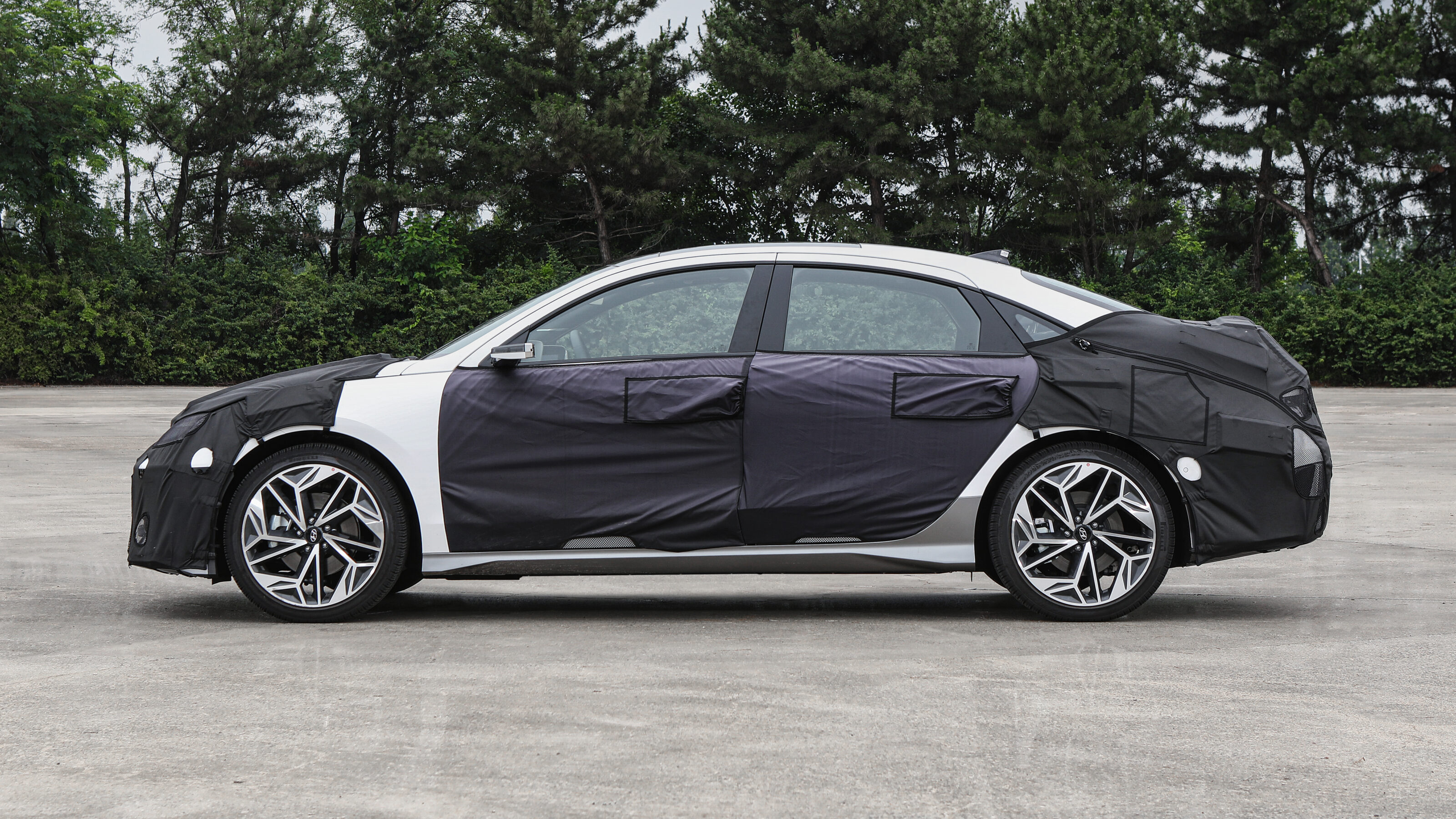
With i-pedal engaged, and despite some traffic and a complete lack of local knowledge, the IONIQ 6 reports an impressive 14.3kWh/100km.
It seems Hyundai’s lengths to build a more efficient powertrain are paying dividends but it wasn’t easy. Firstly, Hyundai’s insistence on referring to the IONIQ 6 as an “electric streamliner” isn’t without truth.
With a drag coefficient of just 0.21cd, it’s one of the slipperiest cars ever made and its specially developed tyres are dedicated to the model, reducing losses even further. During my time with the car, not once did the levels of traction suggest the rubber was compromising on grip or feel to save a few electrons.
Then there’s the power management system itself. Its inverter and cooling system has been refined, minimising the amount of energy that all EVs inherently waste in the journey from battery to wheels. The result is a car that can go up to 610km – one of the longest ranges of any EV – from a 77.4kWh battery, which certainly isn’t the largest in the game.
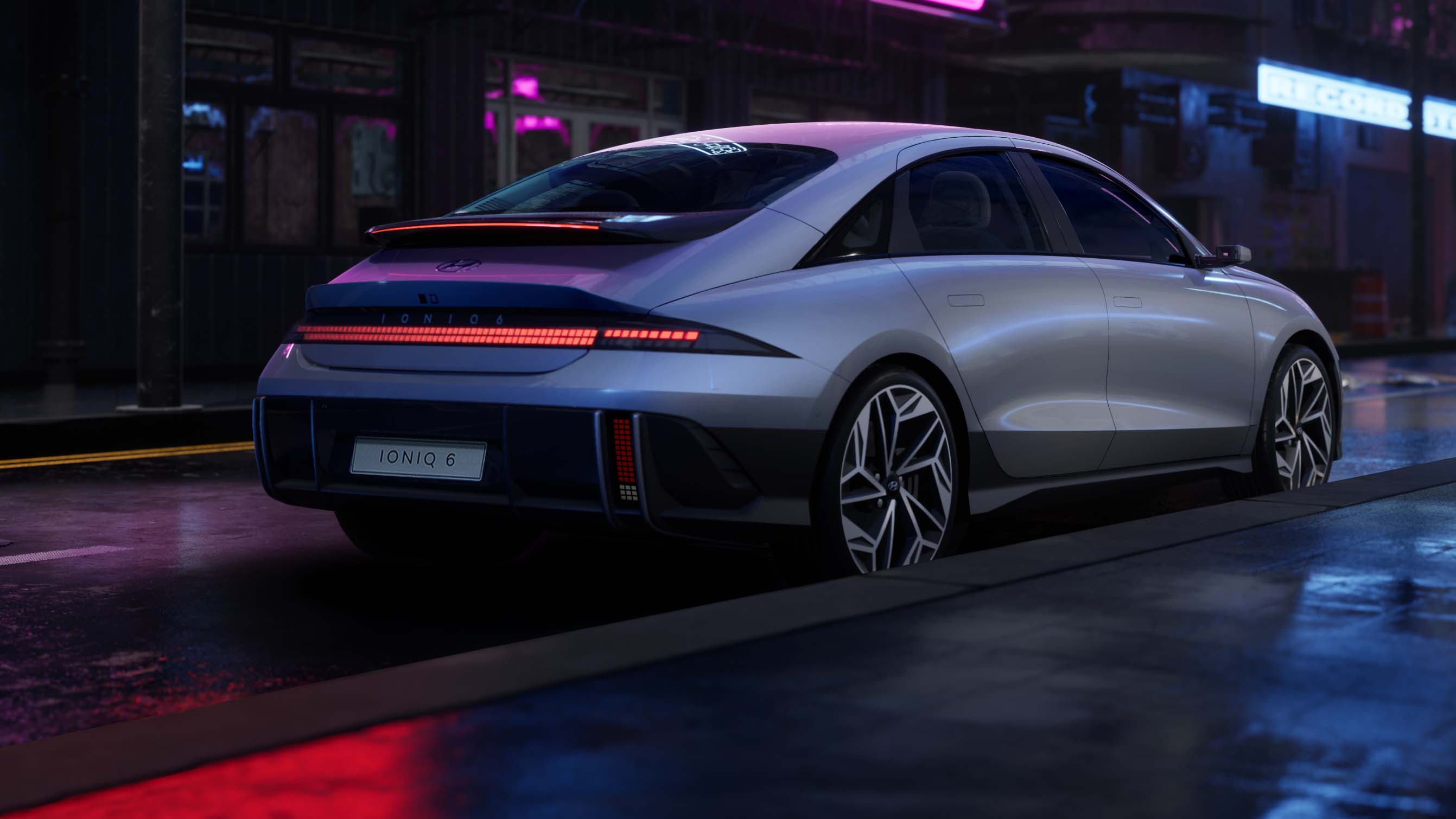
The result is a car that can go up to 610km – one of the longest ranges of any EV – from a 77.4kWh battery, which certainly isn’t the largest in the game.
While our car didn’t quite make the claimed efficiency figure, it’s worth mentioning that it did come close and it was achieved even when fitted with the larger 20-inch wheels (not the more efficient 18-inch versions), the standard side mirrors (not the digital units required for the lowest drag) and while wrapped in a disguise that certainly wouldn’t have helped aerodynamics.
Hyundai’s vigil to get the most out of every electron pumped into the battery is admirable and the gains will increase with each new arrival to the line-up including its next model – the IONIQ 7 large SUV.
With its various lumps and cloths fixed about its exterior, the prototype IONIQ 6 was giving little away regarding its design, but this first meeting did offer a glimpse at where Hyundai is taking its EV family’s interior styling.
There’s certainly a similarity between the IONIQ 6’s cabin compared with the IONIQ 5, including the expansive digital displays and use of cool, high-quality materials.
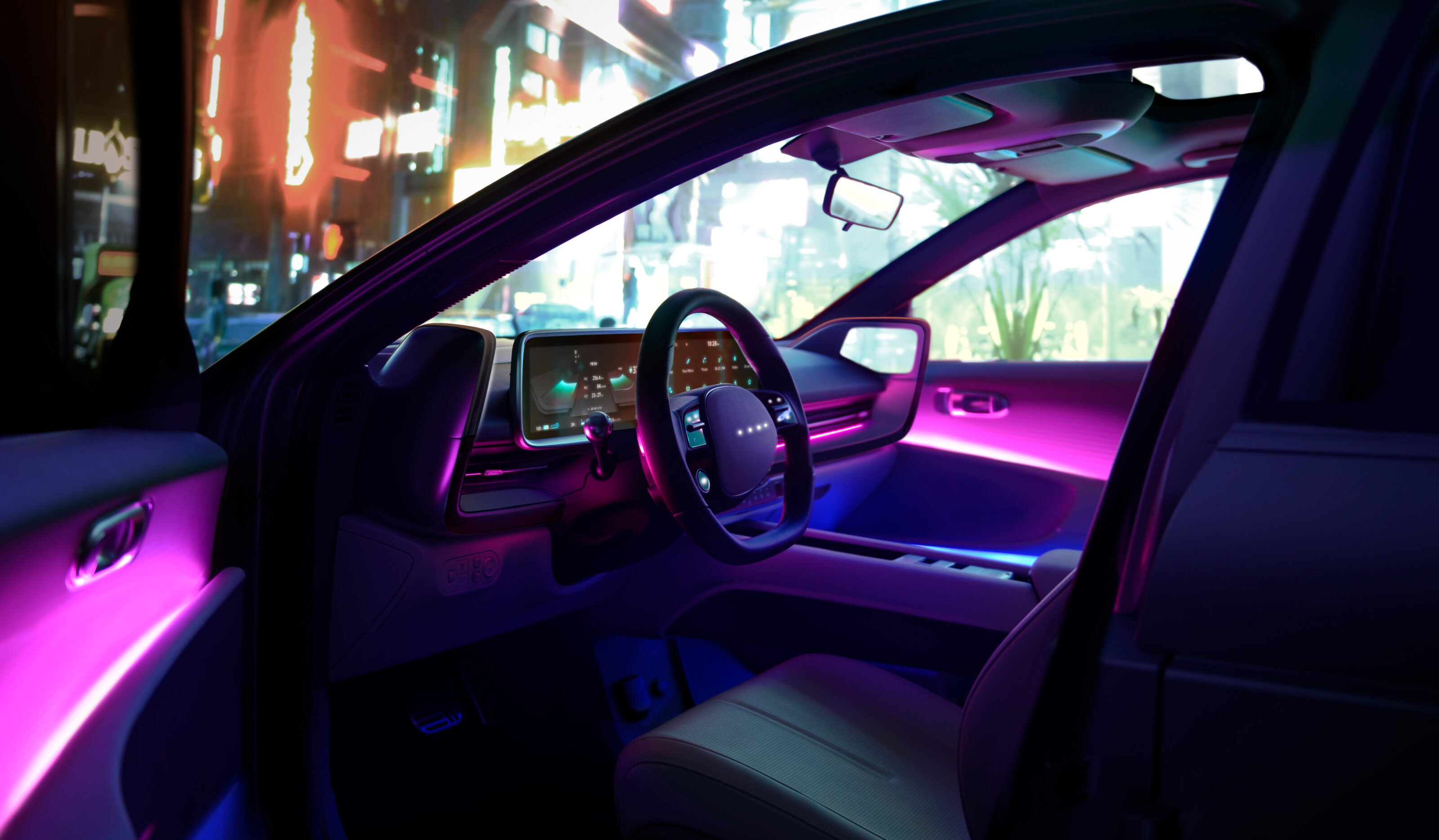
My fingertips particularly enjoyed the unusual waxed cotton material that was almost reminiscent of a new Driza-Bone and was one of eight different textures and colours I counted about the cabin.
The four dots on the steering wheel centre represent an H in Morse code and are illuminated, indicating the state of charge according to their colour.
In place of the unusual sliding centre console from the IONIQ 5 is a marginally more conventional flying beam that retains the masses of storage space beneath – much like the Hyundai Palisade.
The rest of the interior feels very much like the IONIQ 5, with a surprising amount of space in the second row and firm but comfortable seating, while ride quality is the same – firm but comfortable.
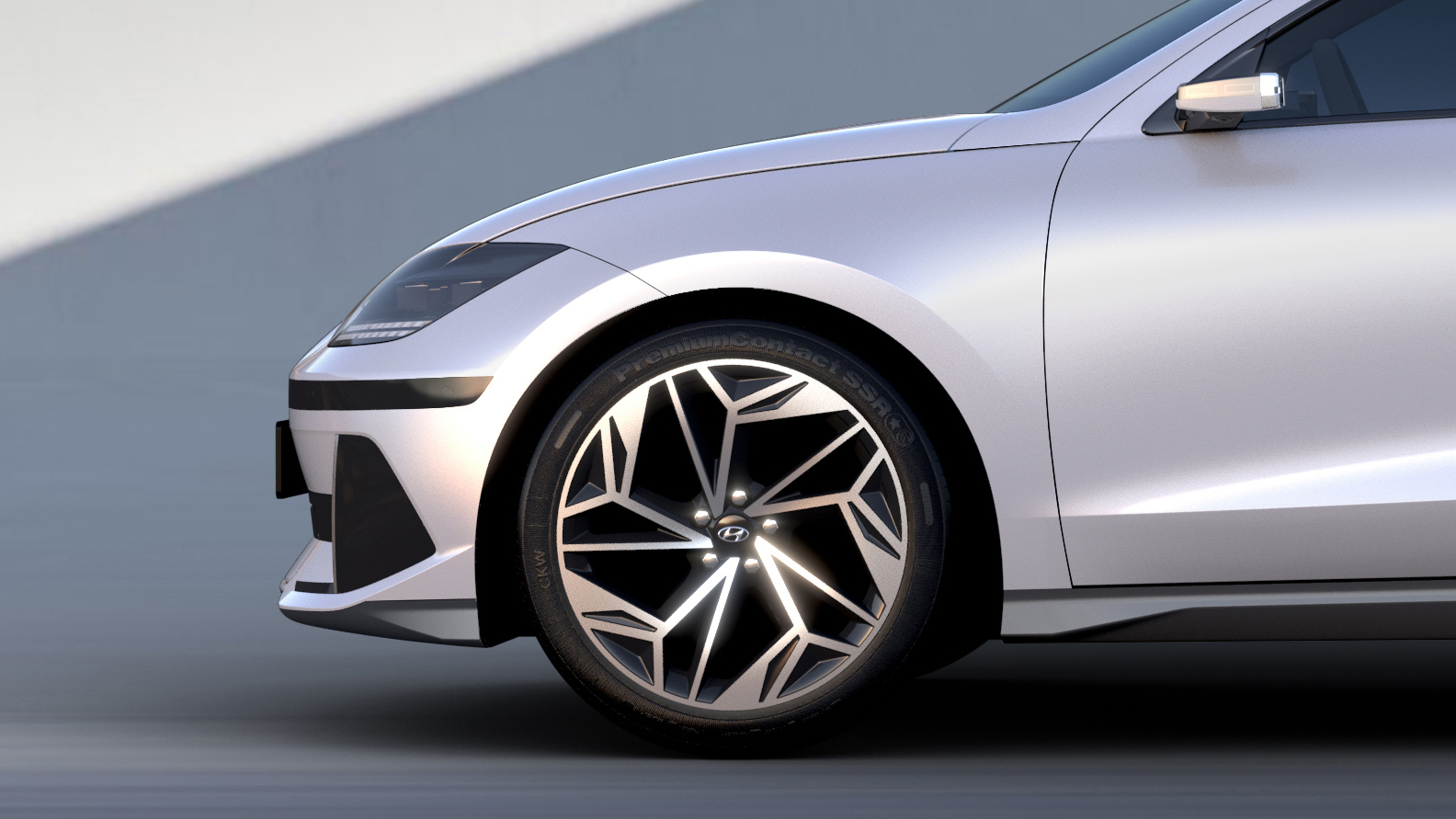
The rest of the interior feels very much like the IONIQ 5, with a surprising amount of space in the second row and firm but comfortable seating, while ride quality is the same – firm but comfortable.
Small fins at each end of the dashboard resemble the wingtips on a Dreamliner and house the screens for the digital door mirrors when fitted, and the built-in dash cam is another clever touch, offering potentially no-claims-bonus-saving technology with both front and rear views recorded.
Our brief trip didn’t include any roads to effectively test dynamics but the general composure of the IONIQ 6 feels improved over the 5, with some of its floaty nature dialled out in favour of the more focused character you’ll find in a Kia EV6. More time, distance and variety would have been great but at least this leaves more to look forward to exploring when it arrives next year.
Before I know it, the closely watching lead and sweep cars are herding me back toward the Namyang Proving Ground security compound and the mysterious car slips back behind closed doors – it’s the only time I’ve felt more comfortable inside the fences of a top-secret development facility compared with the outside world.
I used to think that Porsche Miami Blue was my favourite car colour but now I think it might be sheets of black fabric with sponge cubes glued underneath.
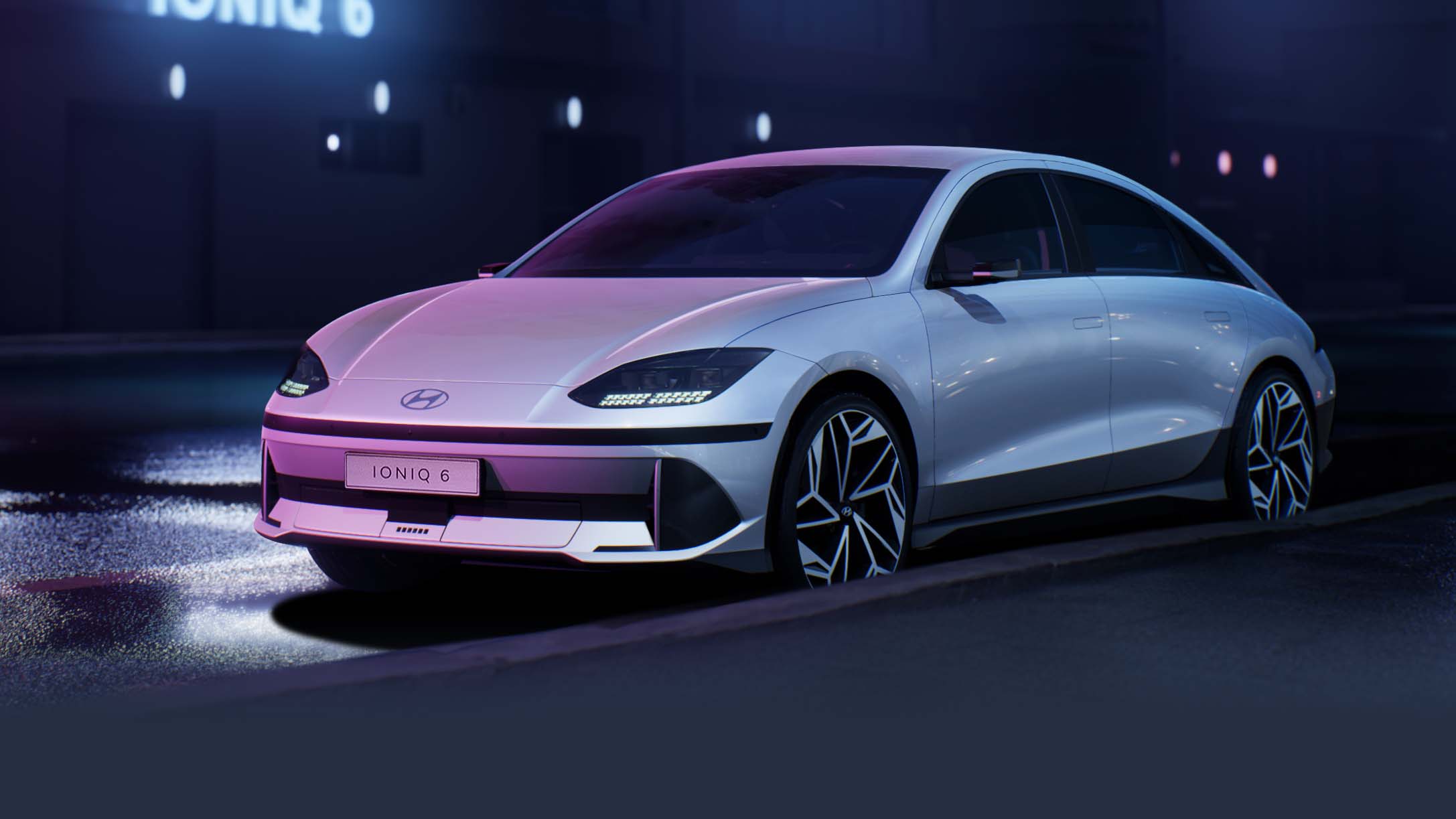
PRE-LAUNCH VERDICT
My brief lap in Hyundai’s latest EV has left me wanting much more. First impressions of this intriguing EV are encouraging and resoundingly positive, but a real-world road test appears to prove one of the most important and interesting truths surrounding electric transport.
The path of progress in the EV world is not simply a matter of building increasingly large batteries to boost range and performance. That strategy leads to a world full of very heavy electric cars that expend much of their energy simply hauling the mass of cells.
Instead, the IONIQ 6 proves that efficiency is the key and using the available energy more wisely leads to a much brighter electric future and is the silent way forward.
Things we like
- Improved efficiency
- Sharper handling
- Massive range
Not so much
- Jury's out on Australian specs
- N model not yet confirmed
We recommend
-
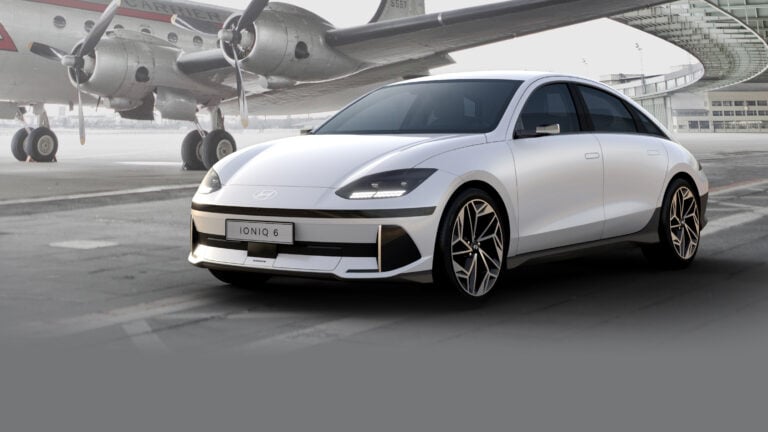 News
News2023 Hyundai Ioniq 6 electric car revealed
Two years on from the reveal of its Prophecy concept, Hyundai has unveiled the final result: the Ioniq 6 electric sedan
-
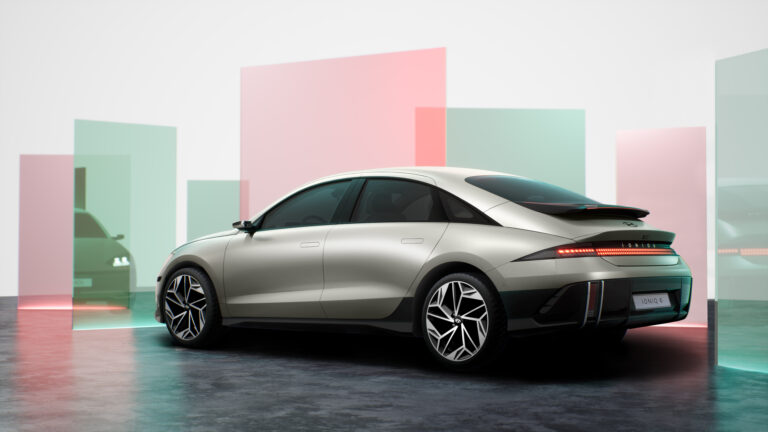 News
News2023 Hyundai Ioniq 6 WLTP driving range ranks among best in class
Hyundai's Ioniq 6 achieves WLTP-rated range of 614 kilometres, among the best on sale
-
 News
NewsNew car calendar 2026: All the new cars coming to Australia next year
Here’s the WhichCar by Wheels guide to all the new cars that will launch in Australia in 2026. Check back in regularly for updates...


